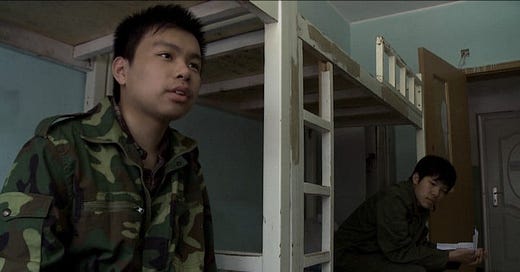‘Web Junkie’ is a Terribly Inadequate Film About Internet Addiction

We joke about Internet addiction in the West. We lovingly called our BlackBerrys “CrackBerrys” when we still used BlackBerrys. We make movies about literally falling in love with our smartphones. But outside of the chronic obsessions with online pornography, we don’t really think of constant Internet usage — the perpetual checking of email and social me…
Keep reading with a 7-day free trial
Subscribe to Nonfics to keep reading this post and get 7 days of free access to the full post archives.



